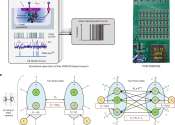Major security flaws in Java applications, European researchers warn
Alexandre Bartel, Professor of Software Engineering and Security at Umeå University, in collaboration with several European researchers, has extensively analyzed weaknesses in software written in one of the world's most ...
Dec 27, 2023
0
2









